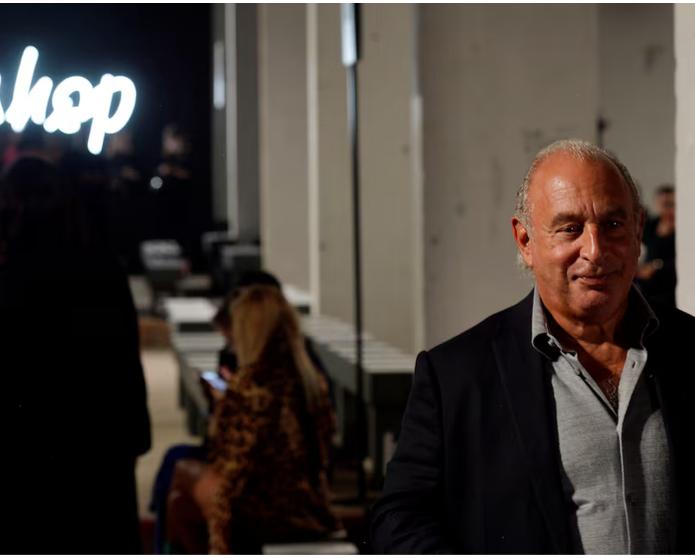The British retail tycoon Philip Green on Tuesday lost a legal case against the United Kingdom over the use of parliamentary privilege by facing allegations of sexual harassment and misconduct allegations.
The case, which was said to be a test of the concept of parliamentary privilege, was launched after Lord Hain announced in the House of Lords in 2018 that Green had used the courts to obtain an interim injunction against the Telegraph to stop publication of the allegations.
Green, once one of Britain’s most prominent businessmen, was named in parliament as having sued to stop publication of the allegations, which Green denied.
Labour politician Peter Hain used parliamentary privilege, which allows members to speak freely and their comments to be reported without fear of being sued, to name the entrepreneur.
Green brought a complaint to the European Court of Human Rights, alleging that the lack of controls on the use of parliamentary privilege to reveal information subject to an injunction breached the right to privacy.
On Tuesday, the European court of human rights(ECHR) ruled against the Monaco-based businessman, who had alleged that the lack of controls on the use of parliamentary privilege breached his right to privacy and This was rejected, by a 5-2 majority.
Lawyers for Green, the former chair of the then Topshop owner Arcadia, had argued that the UK, as a member of the ECHR, must ensure that parliamentary privilege was not used to circumvent court orders.
In a complaint lodged in April 2019, Green’s lawyers told justices in Strasbourg that Hain’s comments in the Lords made his breach of confidence claim against the Telegraph futile, violating his right to a fair trial, and his privacy had been breached.
Green’s lawyers challenged the absence of controls on the power of parliamentary privilege to reveal information covered by an injunction.
On Tuesday, the Strasbourg court said: “The court found that it should be left to the respondent state, and parliament in particular, to decide on the controls required to prevent parliamentary members from revealing information subject to privacy injunctions.
“To find otherwise would run contrary to the principle of the autonomy of parliament, which had already considered and rejected the need for further controls.”
It was reported that Green had allegedly groped a female executive and bought her silence with more than £1m, and had referred to a black employee “throwing spears in the jungle” while drawing attention to his dreadlocks.
Green became one of Britain’s best-known tycoons when he bought the department store group BHS in 2000 and Arcadia, owner of the high-street chain Topshop, in 2002.
The entrepreneur was known as “king of the high street” and was knighted by Queen Elizabeth, but his reputation was damaged by the collapse of BHS after he sold the chain for one pound in 2015 to a businessman who had previously been declared bankrupt with no retail experience.
The business collapsed a year later, with the loss of 11,000 jobs and a £571m pension deficit, leading to an outcry that eventually forced Green to pay £353m to support the pension scheme.

